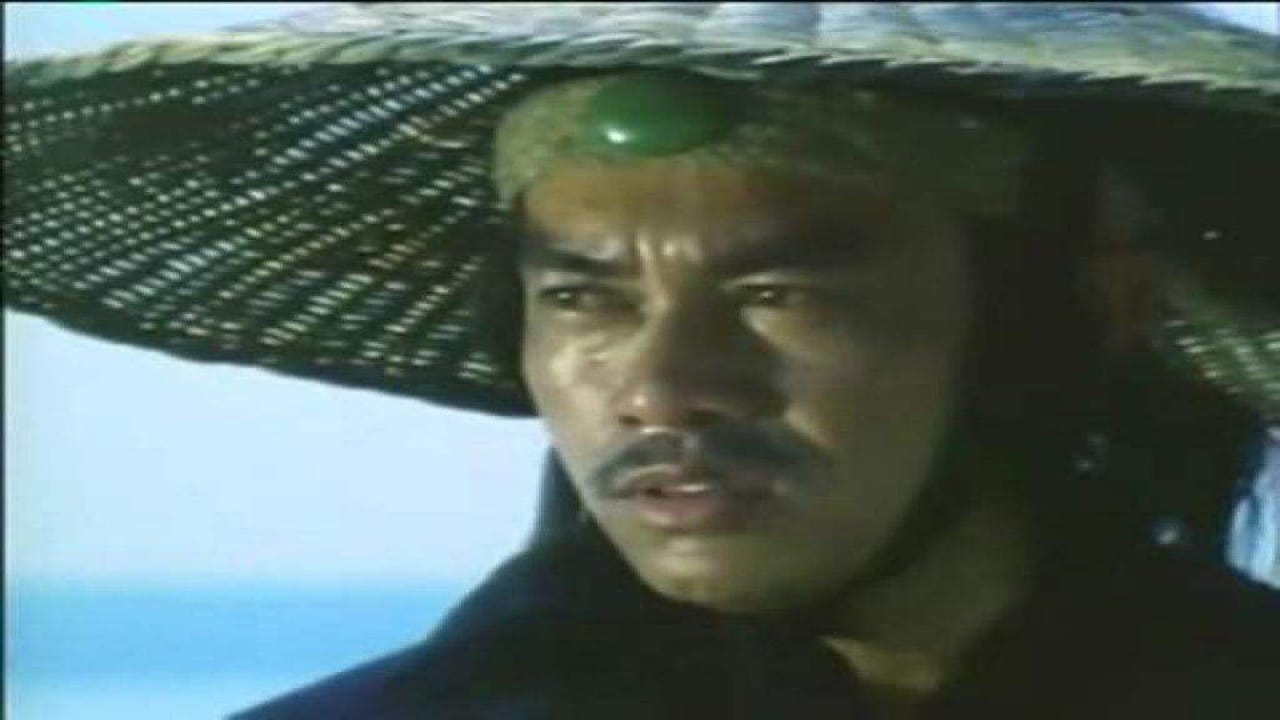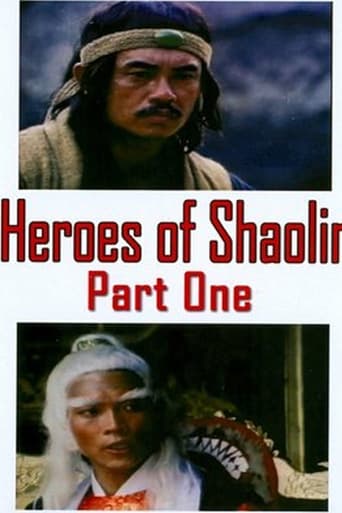

Chan Sing was one of the original "real deal" kung fu movie stars in that he had a black belt in the karate style Goju-Ryu. In his early films he brought the sai, a traditional Okinawan martial arts weapon to the screen. Born in Thailand and looking a bit dark and with a moustache he made a perfect villain in his early Shaw Brothers movies. In my opinion this movie is one of his best. Unfortunately the best copy I ever came across was a digital file made from a VHS tape dubbed in English. The picture is sharp enough to watch on a modern wide screen television but it is not wide screen. I would love to find a laser disk version but none seem to have made it out of Hong Kong. The story starts with a creative twist on the old revenge plot. Chan Sing kills a man and his son swears revenge. Instead of getting twenty years older and meanwhile the kid becomes a martial arts master and then comes back to kill him, Chan Sing takes the revengeful son under his wing to teach him martial arts. I'm thinking his motive is that in twenty years they will have bonded and then the kid will not want to kill him for revenge – problem solved. Later he accepts an unusual murder contract in that politics and patriotism become part of the story. Then he stops a girl from being taken to forced prostitution by fighting and paying her contract. A challenger appears and Chan Sing feels he is too young so the two kids battle. His student loses but survives. Lo Lieh is behind this. After the kid heals up they fight again as Chan Sing and Lo Lieh watch. This time Chan Sing's student wins. Next Lo Lieh fights Chan Sing and I was disappointed with this fight. Lo Lieh is also one of the first – if not the very first – original "real deal" kung fu movie stars. He learned mostly karate in his teen years in Indonesia. This could have been a unique karateka versus karateka fight but it was not choreographed that way. I guess they just never thought of it. Instead, Lo Lieh fights without honor and they both live to fight another day. On the way to the brothel, Got Siui-Bo gets his cameo. I call him respectfully the fat man of martial arts movies. He made 284 movies from 1964 to 1996 and with his body habitus he only suited the role of the fat guy. Despite that limitation he added true emotion from grief to comedy to many of his performances and often stole the scene in brief appearances. Chan Sing then finds the woman he freed from the brothel yet working at the brothel. The real treat at the brothel is Doris Lung Chung- Erh, whom I lovingly named Crazy Doris. Check out her personal life and you might agree with me. They fight, using stunt doubles only for the acrobatics. This sets up the fight for Chan Sing versus Hwang Jang-Lee. Chan Sing is defeated but lives and the kid has his climactic moment where he decides not to revenge. The focus shifts to the kid fighting everyone starting with Crazy Doris and company. Of course, the good guys win and bad guys lose.
... View MoreMore bone crunching martial arse hi jinks here, full of bad dubbing, questionable antics, and bad wigs. Grrr. I'll get you! Some champion challenges another champion to a fight on a beach (I'll get you!), causing the other guy to kill himself. This guy's son goes nuts (I'll get you!) but the losing champion makes the winning champion promise that he'll look after his son and also take down some Manchurian spies who also happen to be champion fighters, so now the winning champion has to raise this guy and teach his kung fu in order for the losing champion's son to grow up strong and kill him. Makes sense so far, eh?So the champion guys also gets hired to kill a guy who turns out to be the guy he was going to kill anyway, plus the guy that hired him was wearing a mask so we'll have to wait to find out who he was. He's also training this young guy to kill him, which seems to involve killing a dog (for real? Who knows in these films) because kindness is not allowed or something, and now and again rescuing this girl from a life of prostitution.While story wise this is kind of boring jazz (not to mention confusing, as it seems to me a bunch of innocent people were beaten up and killed), there's plenty of martial arse battles to watch. For some reason the version I watched was split into two separate parts. It's okay, don't sweat it if you don't see it.
... View MoreI don't really have anything to say about Hero of the Wild other than, about 46 minutes into it, we cut to a scene of someone dropping down into a cave to break free the hero and suddenly, like catching the glint of Sparticus' wrist-watch, we hear the distinctive metallic pulse of Pink Floyd's Echoes. The snippet last just long enough for Gilmour's undulating lead and Wright's patter of organ notes to become audible, and then it's gone. It's an oddity. One wonders if the band knew their music had been linked, however fleetingly, to the doomed rebel struggle to return the Ming to power. How the world would have been different had they succeeded.
... View MoreIn Sweden they sell a cheap box everywhere called "karate classics" with five old kung fu films from the seventies.. This film was the only good film in the box. The cover says "The Fox of Shaolin". The story is quite boring and strange... mostly about honour, challenges, revenge and so on... but hey.. it´s old skool kung fu:)Sing Chen play the lead role. The Kung Fu action by YUEN BIAO and COREY YUEN is very good. They both also play small roles. HWANG JANG LEE and LO LIEH is the bad guys..A quite impressive role list.I was very surprised! Any collector of kung fu films should own this one. It seems to be totally forgotten. I wonder why! I liked it.
... View More